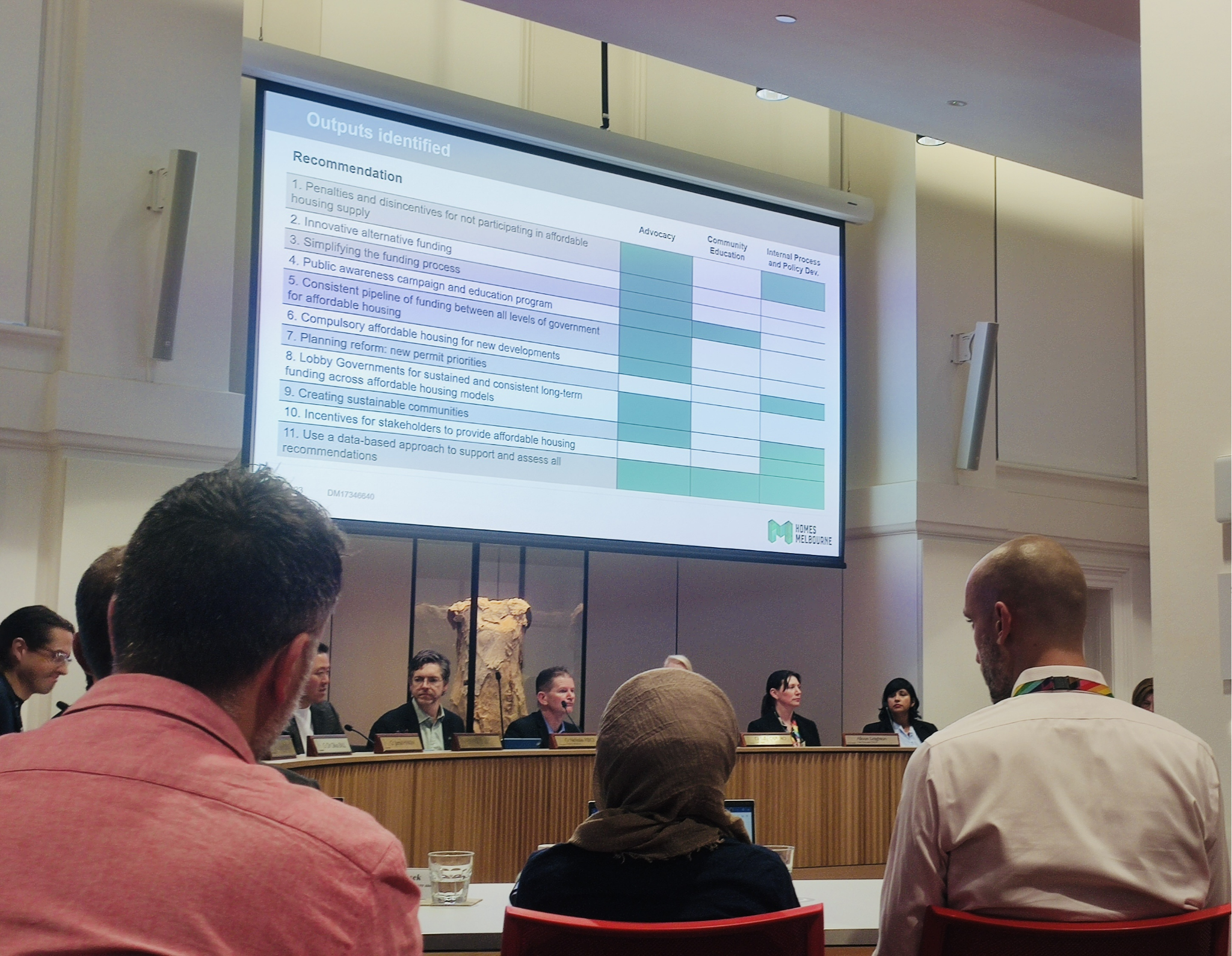
The City of Melbourne will Add Affordable Housing to Address Underinvestment and Population Growth
Melbourne Homes Director Jo Cannington said Melbourne unprecedented housing crisis and the Future of Melbourne Committee meeting would implement the recommendations of the People’s Panel to address it.
Jo Cannington said, “Panelists want to see local government and all tiers of government, recommending active in this space, advocating funding, delivering better affordable housing outcomes.”
The panel's report stated that Melbourne is currently short of more than 6,000 affordable homes and that innovative solutions are needed from all levels of government and the community to strengthen infrastructure and fully guarantee people's right to housing.
Cameron, the homeless man in Bourke Street in the centre of Melbourne, said “There are too many people living on the streets. I see people walking around here with no shoes on and talking to themselves. It’s remarkable to see. The politicians should walk to this end of the street to see what’s going on, down here.”
Overseeing the implementation of Melbourne City Council Plan Strategies, the Future Melbourne Committee held an offline meeting yesterday in Melbourne Town Hall in response to 11 recommendations made by the People's Panel, a group of 39 individuals of the public representing the residential community.
The People’s Panel would like the Melbourne City Council to request state and other local councils permanently dedicate at least 30-40% of new development (as allowed by negotiation) to affordable housing (as part of land ownership), phased in over a 10-15 year period, starting at 5%.
Rushda Halith, general manager of community and city services, said the recommendations aim to regulate the private housing market, enhance financing opportunities, streamline the planning process, and educate the community.
“If adopted, the recommendations will strengthen the Council's existing actions, particularly in advocating for mandatory inclusionary zoning and increased funding for affordable housing, and will create a more sustainable community as well as a more cohesive society,” Miss Halith said.
The Future Melbourne Committee said they supported the recommendations made by the People's Panel and set up an internal working group to implement them. The working group then identified three key outputs covering advocacy, education, and policy to increase affordable housing in the City of Melbourne.
The internal working group is working to meet the housing needs of the population through the development of new community education programs.
For example, the group will change to state and federal funding models and revisions to regulations, advocacy programs to inform the community about existing problems and solutions, and policy development programs focusing on internal changes.
Leisa Makszin, BeyondHousing Housing Services Manager said, “Housing ends homelessness. It is an excellent and thoughtful report that is chock full of ideas for the city, the state, and our common government, and how we tackle this housing.”
“This community panel has shown that if you get a group of ordinary people together, give them enough time, give them proper information, then they are very capable of navigating the most complex of public policy,” she said.
Councillor Roshena Campbell has a different view. “Unfortunately, I don't agree with the panel's recommendation 1, proposing penalties and disincentives for not participating in the affordable housing supply. I won't be voting for the motion, ” she said.
“Recommendation 1 requests to increase the tax rate, the vacant properties from the current level of 1 % of the value of the property to 10 % capped. However, if someone left their property vacant for more than 6 months, they would pay a tax of 10 % of the property value,” she said.
According to the panel’s report, 'affordable housing' refers to a specific type of housing for low and moderate-income earners where the rent does not exceed 30% of gross household income. The People's Affordable Housing Panel was established at the end of 2023, with the approval of the Future Melbourne Committee, to address the critical housing shortage in the City of Melbourne.
Rushda Halith advised that construction of affordable housing in the City of Melbourne will commence in July 2024 and progress will be announced subsequently.
Note: figures appearing in the article are from the conference PowerPoint
Here is the link to the meeting material:https://kdocs.cn/l/cp9Vowx5CcU5?f=301
Post a comment